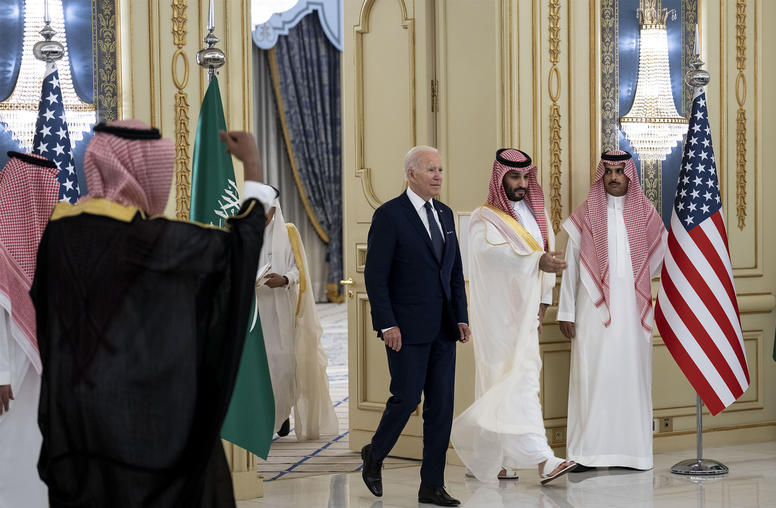 Saudi Arabia
Saudi Arabia
Featured Research & Analysis

After Assad’s Fall, Gulf States See Risks and Rewards in Syria
Gulf Cooperation Council (GCC) countries reacted quickly to the collapse of the Assad regime with public statements supporting the aspirations of the Syrian people, calling for respect of Syria’s sovereignty, territorial integrity and unity, and warning against a descent into chaos. During Syria’s Arab Spring uprising, both Saudi Arabia and the UAE backed competing factions of the Syrian armed opposition. But following years of bloodshed, frustration with a divided opposition and what seemed like a deadlocked conflict, they decided to deal with facts on the ground by reopening diplomatic channels to try to pull Assad away from Iran’s orbit and address other priorities, including curtailing the Captagon trade and facilitating the return of Syrian refugees.

A Slippery Slope? U.S., U.K. Launch Strikes on Iran-Backed Houthis in Yemen
On January 12, the United States and the United Kingdom, supported by Australia, Bahrain, Canada and the Netherlands, launched military strikes against Houthi targets in Yemen in response to the group’s attacks on civilian and military ships in the Red Sea. The U.S.-led strikes are a significant escalation and part of the growing regional impact of the Israel-Hamas war, which the United States has been actively trying to prevent from turning into a regional war.

Is a Saudi-Israel Normalization Agreement on the Horizon?
In recent months, a drumbeat has built around the U.S. effort to negotiate a normalization agreement between Israel and Saudi Arabia. The deal would be a tectonic shift in Middle East geopolitics, but also carries major implications for other actors beyond the three negotiating parties. Israel would, of course, benefit from normalized relations with the Saudis — long seen as the “holy grail” of potential normalization agreements for the country. The Saudis, in turn, would see their interests advanced through strengthened U.S partnership in key areas. But this deal could also have serious implications for the future of the Palestinian national movement and, further afield, for the role of China in the Middle East.
Current Projects

The Red Sea in Turmoil: Peace and Security in the Horn of Africa and the Middle East
The states on the western side of the Red Sea to the south of Egypt and the Arab states from the east of Egypt through the Arabian Gulf have long been considered distinct regions. This is increasingly a distinction without a difference, however, as these states now operate more as a common political, security, and economic zone.